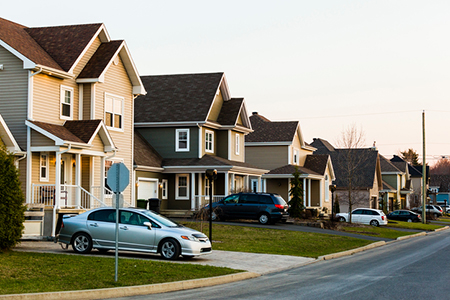Real estate has many intricate ins and outs, and understanding easements is no exception. When an easement is requested by a neighbor or neighboring developer, or when a homeowner needs to obtain an easement from a neighbor or a municipality where they live, it helps to understand the particulars.
According to our sources at the American Bar Association (ABA), an easement is an interest in land which is owned by a person who is not the owner of the whole parcel.
An easement can provide someone the right to use or control a portion of a parcel, or an area above or below it, for a specific limited purpose such as to cross it for access to a public road, to share a common drive with a neighboring property, or to install and maintain utility wires or lines.
Unlike a lease or license, the ABA says an easement may last forever, but it usually doesn’t give the holder the right to exclusively possess, take from, improve, or sell the land. And the owner whose property is impacted by an easement is normally free to use their property as he or she chooses, provided that use doesn’t impair the rights of the holder of the easement.
So, what happens when someone else has a properly recorded easement over property you’re interested in buying?
The ABA says if the survey of the property reflects a path labeled “easement” but no document is of record creating the easement, you will want to inquire as to where the surveyor obtained the information about this easement.
If the unrecorded easement is shown on the survey, the ABA says the title company will likely list this unrecorded easement on your title policy as an exception to coverage. That means that if someone were to claim the right to use this easement, your title insurance would not pay to resolve this issue.
Of course, the best person to advise you regarding obtaining an easement—or a property upon which an easement exists—is a reputable real estate attorney.
For the latest real estate news and trends, bookmark RISMedia.com.












